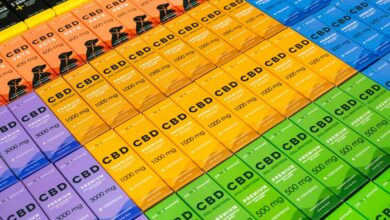How Long Does Cbd Stay in Your Urine

The duration that CBD remains detectable in urine is influenced by multiple factors, including the amount consumed, frequency of use, and individual metabolic rates. Various CBD products, such as oils and edibles, exhibit different detection times due to their bioavailability. Understanding these dynamics is crucial for anyone considering the implications of CBD use, particularly regarding drug testing. What remains unclear is how personal hydration and metabolism further complicate this issue.
Understanding CBD Metabolism
The metabolism of CBD (cannabidiol) is a complex process that involves several physiological pathways.
CBD absorption rates vary based on administration routes, influencing its bioavailability.
Once absorbed, CBD undergoes metabolic conversion primarily in the liver, where it is processed through various elimination pathways.
Understanding these mechanisms is essential for individuals seeking to optimize their experience with CBD while maintaining awareness of its persistence in the body.
Factors Affecting CBD Detection in Urine
While individual factors can significantly influence the detection of CBD in urine, several key elements contribute to how long it remains traceable.
CBD concentration in the system plays a critical role, as higher levels may extend detection times.
Additionally, the frequency of use, metabolic rate, and hydration levels affect urine testing outcomes, ultimately determining the duration CBD is detectable in urine samples.
Detection Times for Different CBD Products
How do different CBD products impact detection times in urine?
Various CBD product types, such as oils, edibles, and topicals, exhibit distinct detection windows in urine testing.
Generally, oils and edibles tend to remain detectable longer due to their higher bioavailability, while topicals may produce negligible traces.
Understanding these differences is crucial for users concerned about the implications of CBD consumption and urine testing outcomes.
Tips for Passing a Drug Test While Using CBD
Numerous strategies exist for individuals seeking to navigate drug testing while using CBD products.
To mitigate risks, users should select broad-spectrum or isolate forms of CBD to minimize THC exposure.
Timing CBD usage before a test is crucial; abstaining several days prior can be beneficial.
Furthermore, staying hydrated may aid in diluting urine, potentially affecting drug testing results related to CBD usage.
Conclusion
In summary, the detectability of CBD in urine is influenced by various factors, including individual metabolism and the type of product consumed. Notably, CBD oil can remain in the system for up to 30 days in chronic users, highlighting the importance of awareness regarding its potential for detection. As the legality and use of CBD continue to rise, understanding these dynamics is crucial for individuals concerned about drug testing and the implications of their CBD consumption.






